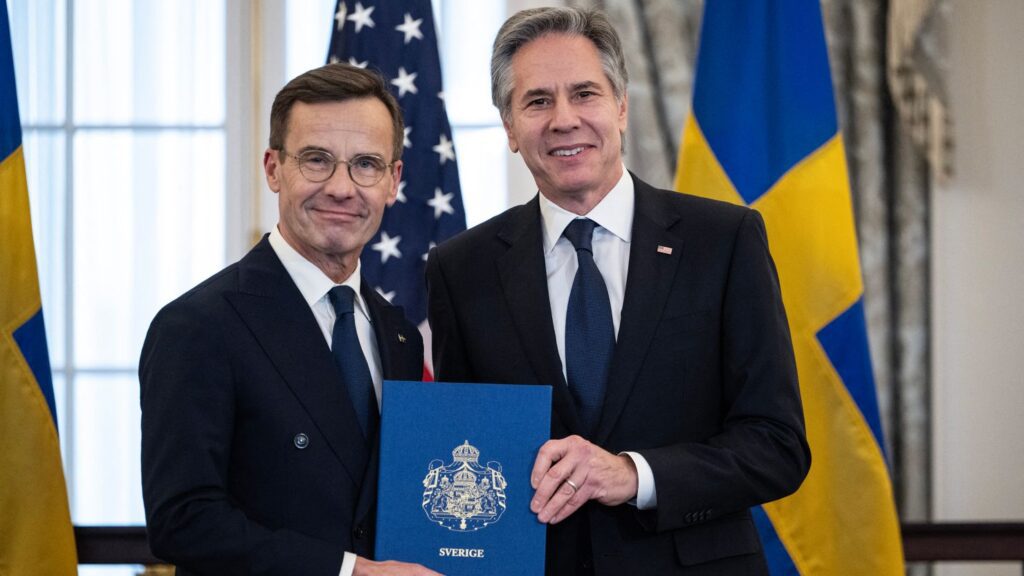NATO’s Partnerships and Collaborations: Engaging with Non-Member Countries for Global Security
NATO, an alliance of 30 member countries committed to collective defense and cooperation, also engages with non-member countries to address security challenges and promote stability globally. The Partnership for Peace program, launched in 1994, fosters cooperation with European and Central Asian nations through political dialogue and military activities. Individual partnerships with countries in various regions focus on specific mutual interests like counterterrorism and maritime security. Operational partnerships allow non-members to contribute to NATO-led missions. Collaborating with international organizations, NATO addresses emerging security threats. Capacity-building and training programs help strengthen defense institutions, while public diplomacy initiatives promote understanding and cooperation. NATO’s partnerships are vital for creating a secure international environment.
NATO’s Partnerships and Collaborations: Engaging with Non-Member Countries for Global Security
NATO, or the North Atlantic Treaty Organization, is a political and military alliance of 30 member countries that are committed to the principles of collective defense and cooperation. While NATO’s primary focus is on the security of its member countries, the organization also recognizes the importance of engaging with non-member countries to address common security challenges and promote stability and security in the Euro-Atlantic area and beyond.
Partnership for Peace
One of NATO’s key partnerships is the Partnership for Peace (PfP) program, which was launched in 1994 to promote cooperation between NATO and non-member countries in Europe and Central Asia. The PfP program provides a framework for political dialogue, military cooperation, and joint exercises and training to enhance interoperability and build trust between NATO and its partners.
Individual Partnerships
In addition to the PfP program, NATO has established individual partnerships with countries in the Mediterranean region, the Middle East, and Asia-Pacific. These partnerships focus on specific areas of mutual interest, such as counterterrorism, maritime security, or cybersecurity, and are tailored to the needs and priorities of each partner country.
Operational Partnerships
NATO also maintains operational partnerships with countries that contribute to NATO-led operations and missions, such as the Resolute Support Mission in Afghanistan or the Kosovo Force (KFOR) in Kosovo. These partnerships allow non-member countries to work alongside NATO forces and contribute to international security efforts.
Collaboration on Emerging Security Challenges
In addition to its partnerships with individual countries, NATO collaborates with other international organizations, such as the European Union (EU), the United Nations (UN), and the African Union (AU), to address emerging security challenges, such as hybrid warfare, cyber threats, or climate change. By working together, NATO and its partners can share information, coordinate responses, and build capacity to address complex security threats more effectively.
Capacity Building and Training
NATO also provides support for capacity building and training programs to help non-member countries strengthen their defense and security institutions, improve military capabilities, and enhance crisis management and disaster response capabilities. By investing in the security and stability of its partner countries, NATO aims to create a more secure and stable international environment for all countries.
Public Diplomacy and Outreach
Finally, NATO engages in public diplomacy and outreach activities to raise awareness about its partnerships and collaborations with non-member countries and promote understanding and cooperation among all countries. Through initiatives such as the NATO Information and Documentation Center in Ukraine or the Partnership for Peace Information Centers in Central Asia, NATO reaches out to local communities and civil society organizations to foster dialogue and exchange ideas on security and defense issues.
In conclusion, NATO’s partnerships and collaborations with non-member countries are essential for promoting peace and security in the Euro-Atlantic area and beyond. By working together with like-minded partners, NATO can address common security challenges, build trust and confidence, and create a more secure and stable international environment for all countries.
